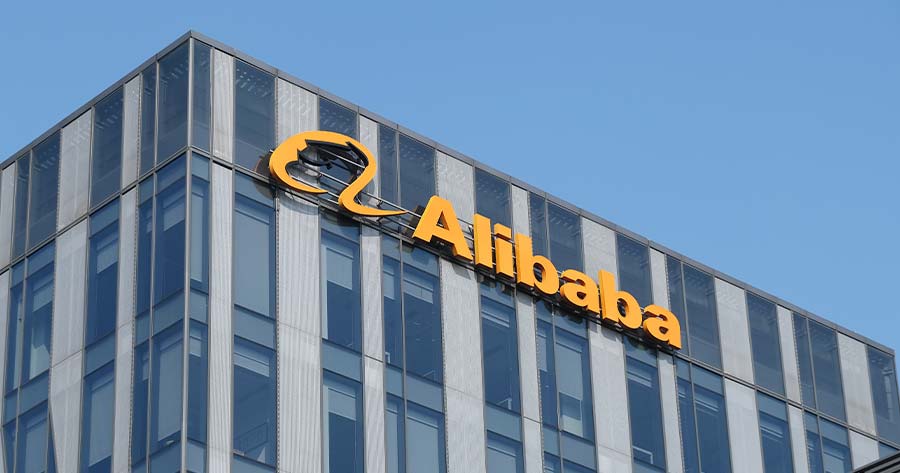Tech
Justice Department Accuses TikTok of Collecting User Data on Sensitive Issues

The Justice Department has accused TikTok of collecting bulk information on users’ views regarding sensitive social issues such as gun control, abortion, and religion. The allegation is part of a legal battle concerning the popular social media platform, which could face a ban in the U.S. if it does not sever ties with its Beijing-based parent company, ByteDance.
According to a brief filed to the federal appeals court in Washington, TikTok and ByteDance used an internal system called Lark to enable communication between TikTok employees and ByteDance engineers in China. This system allowed the transfer of sensitive U.S. user data to Chinese servers, accessible to ByteDance employees.
One of Lark’s tools allegedly permitted employees to gather information on users’ content and expressions on controversial topics. Reports indicate that TikTok tracked users who watched LGBTQ content via a dashboard that has since been deleted.
The court documents mark the government’s first significant defense in the case, stressing the potential risk of “covert content manipulation” by the Chinese government. The Justice Department warned that China could manipulate the algorithm to influence public opinion and exacerbate social divisions in the U.S.
TikTok spokesperson Alex Haurek countered the claims, asserting that the ban would violate the First Amendment by silencing 170 million Americans and arguing that the government has not provided concrete proof of its allegations.
The Justice Department also highlighted concerns about TikTok’s Project Texas, a $1.5 billion initiative to store U.S. user data on Oracle-managed servers, questioning its effectiveness in mitigating national security risks.
Oral arguments in this pivotal case are scheduled for September.
Tech
X to stop Grok AI from undressing images of real people

X has announced that its artificial intelligence tool, Grok, will no longer be able to edit images of real people to depict them in revealing clothing in jurisdictions where such activity is illegal, following widespread backlash over the misuse of sexualised AI deepfakes.
In a statement published on the platform, X said it had introduced new safeguards to prevent the Grok account from being used to manipulate photos of real individuals in a sexualised manner. “We have implemented technological measures to prevent the Grok account from allowing the editing of images of real people in revealing clothing,” the company said.
The move has been welcomed by UK authorities, who had previously raised concerns about the tool’s use. The UK government described the decision as a “vindication” of its calls for X to take stronger action to control Grok. Media regulator Ofcom also said the change was a “welcome development”, while stressing that its investigation into whether the platform breached UK laws is still under way.
“We are working round the clock to progress this and get answers into what went wrong and what’s being done to fix it,” Ofcom said, signalling continued scrutiny despite the latest measures.
Technology Secretary Liz Kendall welcomed X’s announcement but emphasised the need for accountability. She said she would “expect the facts to be fully and robustly established by Ofcom’s ongoing investigation”, underlining the government’s commitment to ensuring online safety rules are upheld.
However, campaigners and victims of AI-generated sexualised images say the decision has come after significant harm had already been caused. Journalist and campaigner Jess Davies, who was among women whose images were edited using Grok, described the changes as a “positive step” but said the feature should never have been permitted in the first place.
Tech
Alibaba Opens AI Video Generation Model for Free Use Globally

Chinese tech giant Alibaba has made its latest AI video generation models freely available worldwide, intensifying competition with rivals such as OpenAI.
The company announced on Wednesday that it is open-sourcing four models from its Wan2.1 series, its most advanced AI model capable of generating images and videos from text and image inputs. These models will be accessible via Alibaba Cloud’s Model Scope and Hugging Face, making them available to academics, researchers, and businesses globally.
Following the announcement, Alibaba’s Hong Kong-listed shares surged nearly 5%, continuing a strong rally that has seen the stock gain 66% in 2025. Investors have been optimistic about the company’s growing role in AI and its improving financial performance, buoyed by recent policy signals from Chinese President Xi Jinping supporting the domestic private sector.
Alibaba’s move aligns with a broader trend in China, where companies are increasingly embracing open-source AI. In January, DeepSeek, another Chinese firm, shook global markets by revealing that its AI model was trained at a fraction of the cost of competitors, using less-advanced Nvidia chips. Both Alibaba’s and DeepSeek’s models are open-source, meaning they can be downloaded and modified freely, unlike proprietary AI models such as those developed by OpenAI, which generate direct revenue.
The shift towards open-source AI has sparked debate over whether AI models will become commoditized. While companies like Meta are leading the open-source push in the U.S. with their Llama models, Chinese firms have been particularly aggressive in this space, aiming to drive innovation and build global AI communities.
Tech
VP JD Vance Pledges to Protect U.S. AI and Block Its Weaponization

Vice President JD Vance reaffirmed the U.S. commitment to safeguarding its artificial intelligence and semiconductor technologies, vowing to block efforts by authoritarian regimes to weaponize them.
Speaking at France’s AI Action Summit in Paris, Vance warned that some nations have exploited AI for military intelligence, surveillance, and foreign data manipulation. “This administration will block such efforts, full stop,” he stated. “We will safeguard American AI and chip technologies from theft and misuse, work with our allies and partners to strengthen and extend these protections, and close pathways to adversaries attaining AI capabilities that threaten all of our people.”
While he did not directly name China’s AI model DeepSeek, which has drawn global attention for its competitive performance at a lower cost, Vance criticized heavily subsidized technologies exported by authoritarian states. “We’re all familiar with cheap tech in the marketplace that’s been heavily subsidized and exported by authoritarian regimes,” he said.
In a pointed message to allies, Vance cautioned against collaborating with companies linked to such regimes, arguing it would compromise national security. “Chaining your nation to an authoritarian master that seeks to infiltrate, dig in, and seize your information infrastructure never pays off,” he added.
The U.S. has ramped up efforts to control AI development and chip manufacturing, tightening restrictions on exports to China and strengthening alliances in the tech sector.
-

 Sports7 days ago
Sports7 days agoMane’s Decisive Strike Sends Senegal into Another AFCON Final as Egypt Exit
-

 Sports1 week ago
Sports1 week agoCarrick Returns to Steady Manchester United as Caretaker Head Coach
-

 News1 week ago
News1 week agoTrump tells Iranians to keep protesting, says help is on its way.
-

 News7 days ago
News7 days agoAt least 28 killed after crane collapses on train in Thailand
-

 Sports6 days ago
Sports6 days agoEto’o handed ban for misconduct at Afcon
-

 Tech6 days ago
Tech6 days agoX to stop Grok AI from undressing images of real people
-

 News6 days ago
News6 days agoIran Judiciary Rejects Execution Claims as Officials Signal Easing of Tensions Over Protest Arrests
-

 News6 days ago
News6 days agoRobert Jenrick sacked by Tories for plotting to defect














